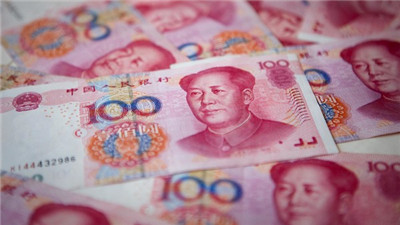(单词翻译:单击)
The International Monetary Fund’s five-yearly review of which currencies should constitute its Special Drawing Rights may seem a dry technical exercise. But a great deal more hinges on the decision than the internal accounts of the Washington-based institution.
国际货币基金组织(IMF)每隔五年进行一次评估,决定其特别提款权(SDR)应由哪些货币构成,这看起来或许一项枯燥的技术工作。但这一决定影响的不仅是这家总部设于华盛顿的机构的内部账目,还有其他许多东西。
For the second time since 2010, the IMF is scheduled in November to raise or lower its thumb as to whether to include the renminbi along with the dollar, the yen, the euro and sterling in the basket of so-called SDR currencies. It is on the surface an arcane distinction. SDRs are a synthetic unit of account used by the IMF to allocate assets among member countries. They are neither used for international trade deals, nor does their existence preclude central banks from holding reserves in other widely circulated currencies.
IMF计划于11月决定是否接纳人民币与美元、日元、欧元和英镑一起构成所谓的SDR货币篮子,这是IMF自2010年以来第二次面临这一决定。表面上看这是一种神秘的荣誉。SDR是IMF使用的虚拟记账单位,用于在各成员国之间分配资产。SDR既不能用于国际贸易协定,其存在也不会妨碍央行持有其他广为流通的货币作为储备资产。

What gives the application its political piquance is Beijing’s hunger to garland the RMB with the status of being an internationally-badged reserve currency. Indeed, so sensitive are the politics that great attention has been paid to an internal IMF report suggesting China might not meet the entry criteria, and proposing an extension to the existing basket until September 2016.
北京方面渴望让人民币成为带有国际标识的储备货币,这让其加入SDR货币篮子的申请在政治上变得富有刺激性。事实上,政治上的极度敏感性,使得IMF的一份内部报告受到极大关注。该报告间接指出,中国可能没有达到被纳入的标准,并提议将现有货币篮子的有效期延长到2016年9月。
Adding the “redback” to the basket would be a powerful piece of symbolism. It comes when Beijing is increasingly asserting its independence from the world’s financial architecture, establishing new regional organisations such as the Asian Infrastructure Investment Bank which it claims are more suited to meet local needs as well as having the less-bruited benefit of being more amenable to its influence.
将“红币”(即人民币——译者注)纳入货币篮子将具有强大的象征意义。北京方面正以越来越大的力度彰显自己相对这一全球金融架构的独立性,建立了亚洲基础设施投资银行(Asian Infrastructure Investment Bank,简称:亚投行)等新的区域金融组织。中国宣称后者更适于满足地区要求,当然还有一个较隐秘的好处是更容易左右。
China has visibly chafed at the governance of the existing institutions, complaining that they are insufficiently open to voices from the developing world. To be fair, some of the complaints are not without substance, not least those concerning voting rights in the Bretton Woods bodies. The risk is that rejecting its application for SDR status might deepen China’s estrangement from western institutions.
中国已明显对现有国际金融机构的治理感到不满,抱怨它们没有足够的意愿接受发展中国家的意见。平心而论,某些抱怨也不是毫无根据,尤其是关于布雷顿森林(Bretton Woods)机构的投票权问题。拒绝中国对SDR地位的申请存在着风险,即有可能加深中国对西方机构的疏远。
There are plenty of reasons not to wish a further fracturing of the global financial system. Of course the IMF should not bend the rules to ease Chinese entry. The RMB must credibly meet the IMF’s criteria. It is to be welcomed that the basket extension is only to aid reserve managers, and not to give Beijing more time to fulfil the criteria.
人们有很多理由希望全球金融体系避免进一步分裂。当然,IMF不应该为方便人民币的加入而放宽规定。人民币必须令人信服地满足IMF的标准。如果延长现有货币篮子的有效期只是为了方便储备管理者、而非给中国更多时间来实现达标,将受到人们的欢迎。
China is in any case not far from meeting the requirements. It is already a major currency for trade and investment. The government has eased capital controls and liberalised financial markets. One particular bugbear was removed in May when the IMF declared that China’s currency was no longer undervalued relative to the dollar to which it has been loosely pegged.
不管怎样,中国距离满足这些要求并不遥远。人民币已是贸易和投资的主要货币。中国政府已经放宽了资本管制,开放了金融市场。IMF今年5月宣布人民币相对其松散挂钩的美元已不再被低估,为中国除去一个巨大的心病。
Two concerns do still raise doubts. One is whether the RMB meets the criteria laid down obliging it to be “freely usable”. Requirements such as the need for China to increase foreign access to markets and further open its capital account may have been hampered by the spectacle of Beijing’s Sisyphean attempts to buoy a slumping stock market over the last two months.
有两个问题仍引起疑虑。一个问题是,人民币是否符合能够“自由使用”的标准。一些要求——比如中国需要扩大外资的市场准入范围并进一步开放资本账户——的实现,可能已受到北京方面过去两个月“西西弗斯式”救市壮举的阻碍。
Aside from the question of eligibility, the IMF must also wrestle with the diplomatic consequences from a potential rearrangement of the top table. Were China to be inducted it would need a weighting in the SDR basket commensurate with its trading heft, giving it a whopping 13 per cent against the 6.7 per cent currently held by Japan.
除了资格问题,IMF还必须设法应对未来领导权重新调整带来的外交后果。如果人民币正式加入的话,中国将需要在SDR货币篮子中得到与其贸易体量相称的权重,这将使其权重高达13%,而日本当前所占权重只有6.7%。
China’s SDR accession is not a done deal. But whatever the monetary cards turn up in November, the direction is clear. China should get its financial governance in order, while the developed world must adjust and grow comfortable with a rising financial power.
人民币是否能加入SDR货币篮子还没有定论。但无论11月的投票结果如何,方向都是明确的。中国应理顺本国的金融治理,而发达国家必须调整并逐步适应一个崛起中的金融强国。


